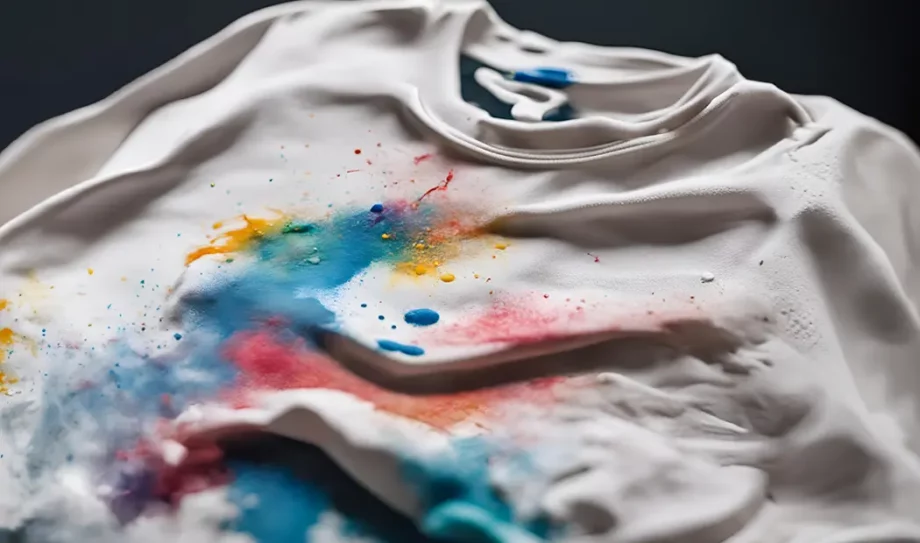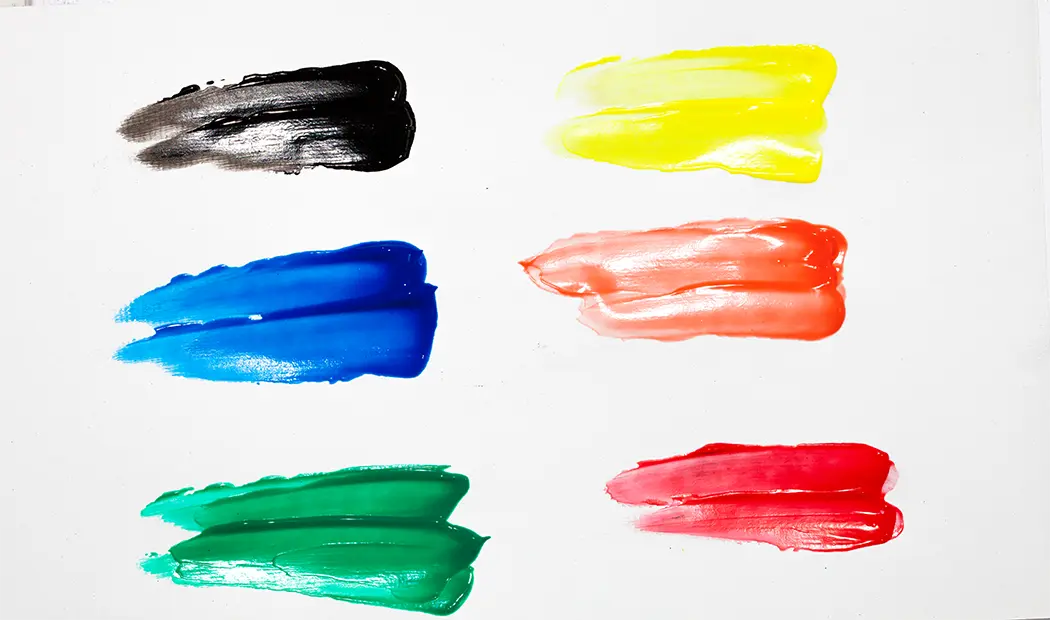Paint is a wonderful medium with which an artist pours his emotions and thoughts on canvas in a marvelous way. Among the various mediums, one such exhilarating form of paint is acrylic paint. Creating beautiful masterpieces with this easy to dry paint lets you express yourself freely, but this artistic journey often comes with the fear of accidental spills and stains on clothing.
Worry not! In this “how to get acrylic paint out of clothes” guide, you will find the right techniques and a little bit of know how with which you can rescue your garments from the colorful catastrophe. Let’s begin our colorful journey and learn about acrylic paints….
Acrylic Paint
Acrylic paints are fast drying paints made of pigment suspended in an acrylic polymer emulsion. They are versatile, water-soluble when wet, and become water-resistant when dry.
Features of Acrylic Paint
- Versatility: Acrylic paints can be used on different surfaces, be they canvas, paper, wood, metal or fabric.
- Fast Drying: Acrylic paints dry quickly, allowing artists to layer colors without long waiting periods.
- Water based acrylic paint: They are water soluble when wet, making them easy to clean up with water and reducing the need for harsh solvents.
- Durability: Once dry, acrylic paints are water-resistant, flexible, and have excellent adhesion to surfaces, making them suitable for both indoor and outdoor use.
- Range of Finishes: Acrylics can be formulated to create different finishes, such as matte, satin, and gloss.
Types of Acrylic Paint Sets
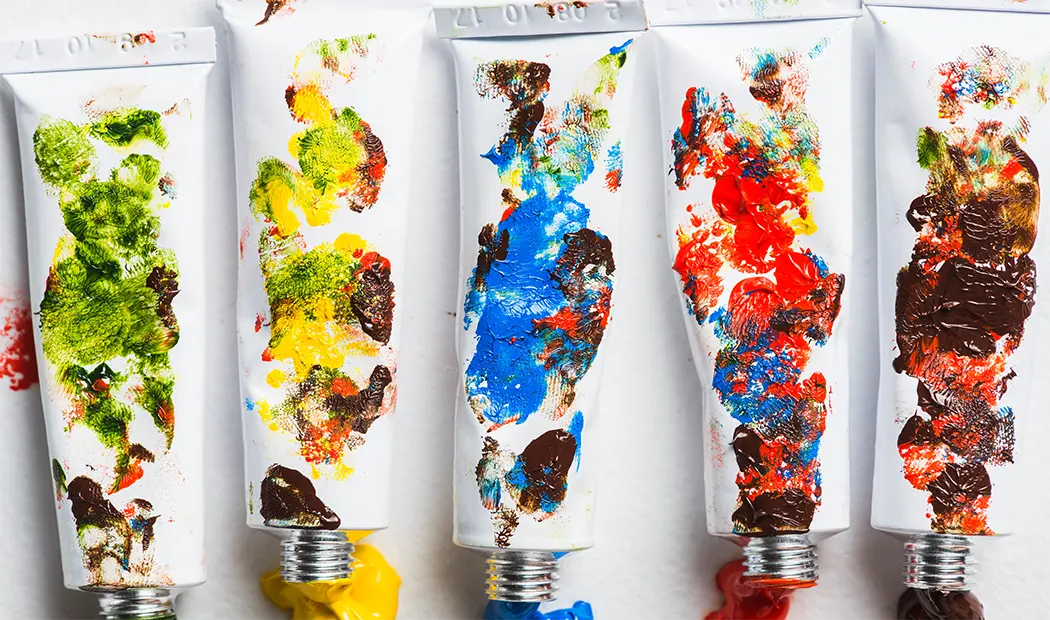 |
Heavy Body Acrylics
|
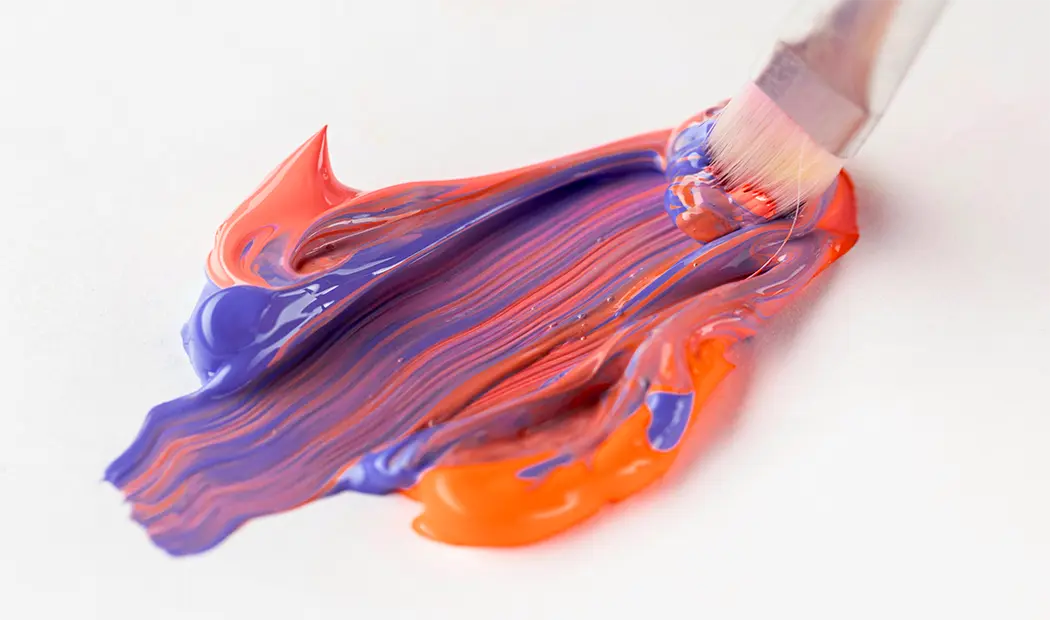 |
Soft Body Acrylics
|
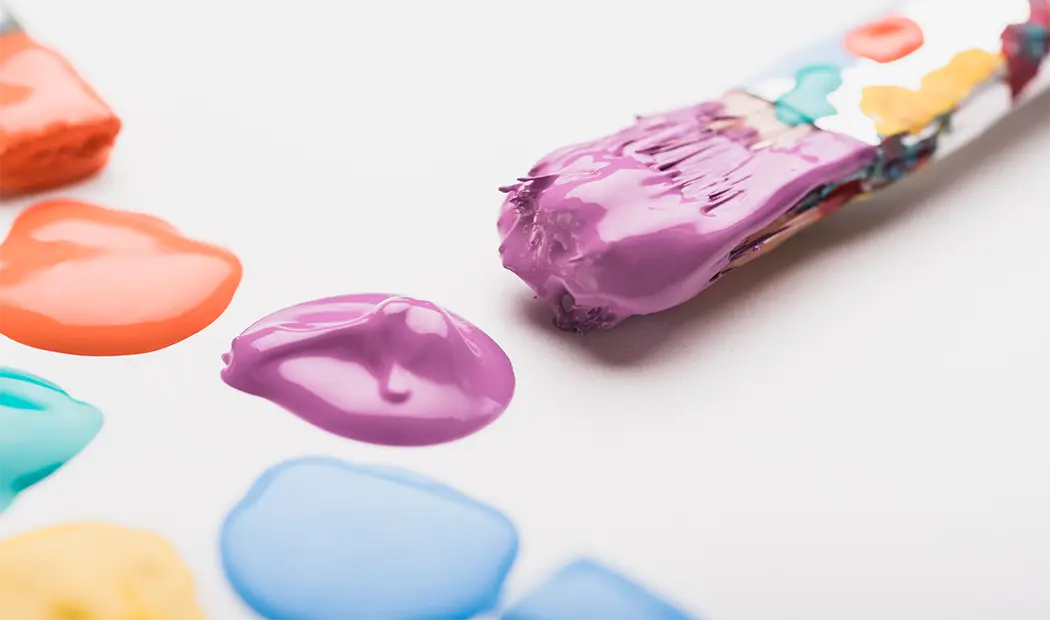 |
Fluid Acrylics
|
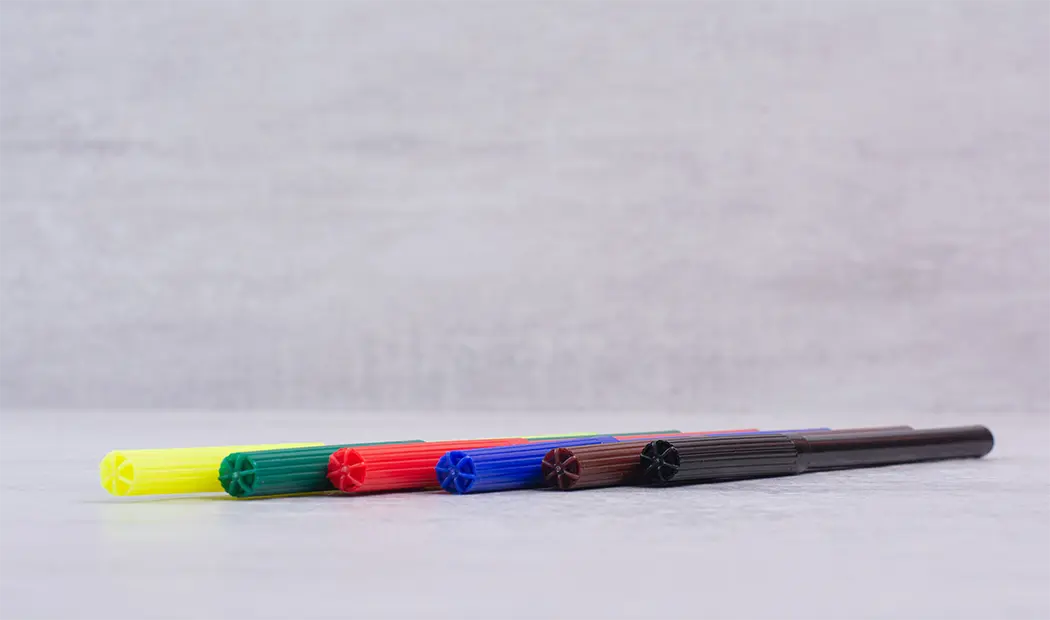 |
Acrylic Paint Pens
|
 |
Acrylic Paint Markers
|
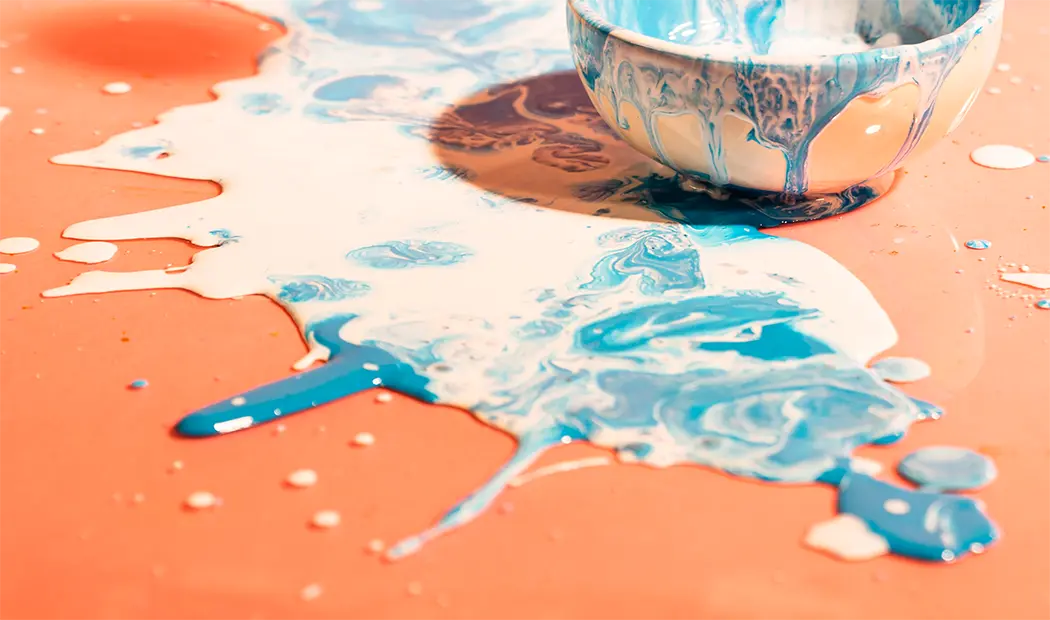 |
Acrylic Pour Painting
|
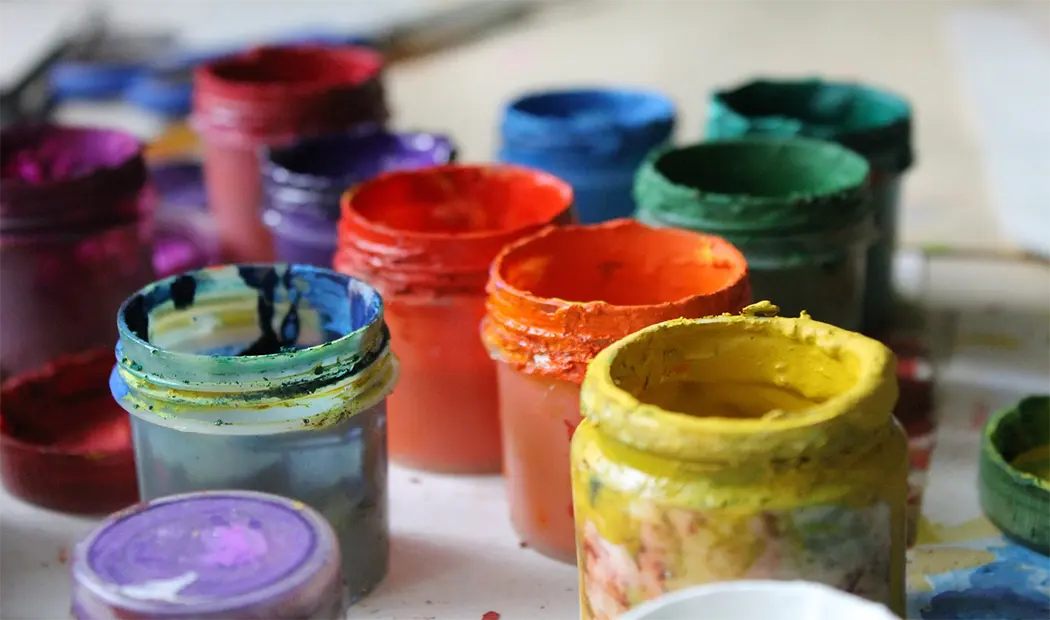 |
Acrylic Gouache
|
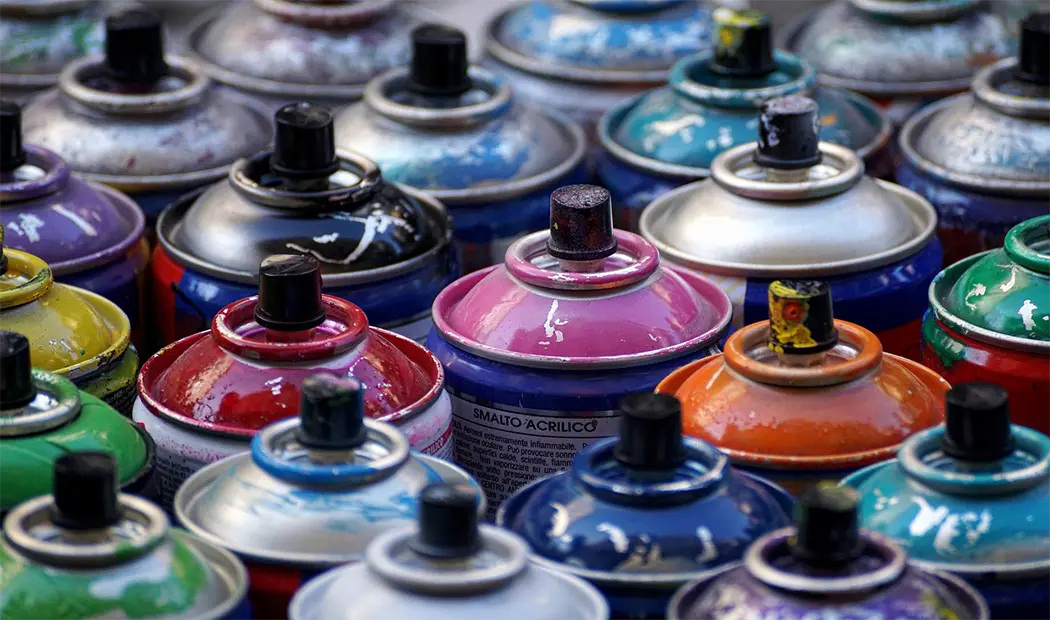 |
Acrylic Spray Paint
|
What is Acrylic Paint Used For?
- For Creating Fine Art: Acrylic paint is used for painting on different surfaces and can be used for creating fine art. It allows the use of painting techniques like impasto, glazing, and layering.
- Acrylic Craft Paint: The best acrylic paints are useful in creating crafts such as painting ceramics, decorating pottery, creating DIY projects, and making decorations for events or holidays.
- Acrylic Home Decor: Acrylic paint can also be used to create artwork for their homes, like wall murals, paintings, and decorative accents on furniture or accessories.
- Acrylic Paint Illustration: These paints can be used by illustrators for creating illustrations in books, magazines, and other publications due to its quick drying time and vibrant colors.
- Acrylic Textile Painting: It can also be used to paint on fabrics and it is useful in creating custom clothing, tote bags, and other textile art projects.
How to Get Acrylic Paint Out of Clothes?
1. Act Quickly:
While painting with acrylic paints, if you notice a paint stain on your clothes, act quickly… grab a clean cloth or paper towel and gently blot the wet paint. This will help to absorb the excess paint from the fabric. Also, do not rub the paint, as it will spread the paint further into the fabric fibers, making it more difficult to remove.
2. Rinse with Water:
Then position the cloth from the back and hold the stain under running water. The position will help to paint out of the fabric rather than getting it more in the fabric. And continue rinsing the fabric until the water runs clear and you see no improvement.
3. Pre-treat the Stain:
Place a small amount of liquid dish soap, laundry detergent, or a specialized stain remover directly onto the stained area. Gently massage the soap or detergent into the fabric with your fingers, focusing on the paint stain. Let the detergent sit for about 5-10 minutes to allow it to penetrate the paint and loosen its hold on the fabric.
4. Soak in Vinegar Solution:
In a basin or sink, mix one part white vinegar with two parts water. Put the stained part of the fabric in the vinegar solution or use acrylic paint remover, ensuring that the stained area is fully immersed. Let the fabric soak for 15-30 minutes. Vinegar is effective in breaking down acrylic paint and loosening it from the fabric fibers, making it easier to remove.
5. Scrub with a Brush:
After soaking, remove the fabric from the vinegar solution. Using an old toothbrush or a soft-bristled brush, gently scrub the stained area in circular motions. Apply light pressure to avoid damaging the fabric. Continue scrubbing until you notice the paint starting to lift from the fabric. If necessary, reapply more detergent or vinegar solution to stubborn areas.
6. Wash as Usual:
Once the pre-treatment process is complete, wash the clothing in the washing machine. Use the hottest water temperature recommended for the fabric, as hot water can help to break down any remaining paint particles. Add laundry detergent to the wash cycle to enhance the cleaning process. Check the stained area before drying to ensure the stain is completely gone.
How to avoid getting acrylic paint on clothes while painting by numbers?
The following precautions can help you avoid getting any acrylic paint stains on your clothes and save you the hassle of cleaning off acrylic paint:
- Wear an apron or old clothes when beginning your painting journey.
- Use a drop cloth or newspaper to avoid excess dripping.
- Take your time and work carefully to minimize the chance of spills and splatters.
- In case you spill the paint, clean it up immediately.
- Remember to keep the unwanted paint pots closed.
- When washing your brushes, be careful not to splatter paint on your clothes.
Summing Up!
As we come to an end with our paint splattering guide, we learned how to get acrylic paint out of clothes, which will help us keep our painting journey worry free. Remember, accidents happen, but they do not have to leave a permanent mark on your wardrobe.
So, fearlessly dive into your paint by number masterpieces, knowing that even if a stray splatter finds its way onto your clothes, you have the knowledge to restore them to their former glory. Here’s to a future of vibrant creations and stain-free attire—may your brushes be steady and your canvases be ever-inspiring!
Don’t forget to check out the paint by number kits of Art of Paint by Numbers and learn about acrylic painting ideas for adding dimension to your paint by numbers!
-
$19 – $59
Night sky acrylic painting
-
$19 – $59
Lighthouse acrylic painting
-
$19 – $59
Painting night sky in acrylic


